Sometimes things don't go as planned
It is part of life that there will be times when stuff happens that was unforseen. There are posts that don't work out. Difficulties that arise in marriages, work, life or with kids. Political changes than make life tough. Financial issues that lead to stress. The list of things that can go wrong in life just goes on and on.
Life is 5% what happens to you and 95% how you deal with it
I'd say that there are four different things you can you when you are up against a tough problem.
Keep on fighting
The obvious thing to do it keep on forging ahead. Typically I would recommend taking a step back. Reassess whatever the problem is. Look at possible solutions but then get back to work. Problems typically don't solve themselves but hardwork and dedication can overcome many obstacles.
A little emphasis on taking a break and stepping back though. There comes a point when you are so intricately tied to the problem that it gets hard to see your way clear of it. Being stuck in that situation saps your strength, robs your viewpoint and generally leads to despair. Getting a bit of rest first then reassessing can give new insight or at the very least renew a bit of strength.
...but there are other options. Such as...
Give Up
Now this is not a popular option, especially if you have put a lot of work into something. Perhaps its a marriage you have spent a long time on. Perhaps its a Hive article you have spent many hours on. Perhaps a job you have spent many years in. There are so many situations where you could find yourself at the end of your strength and desire.
Many things are worth fighting for. Indeed with all the time and effort sunk into something the first option is almost always to keep on fighting. However, there is something called :
Which more or less says that sometimes you keep on fighting for something just because you have fought so hard for it already. Or you keep on spending money on something just because you have put so much money into it already.
Example: You have an old car. It needs an alternator so you put in $350. Then the brakes go so you spend another $500. Then the headlight burns out so you spend another $75. As things continue to pile up you start thinking...well....I've already put so much money into it I should just keep on fixing it! In reality there is a time when you just cut your losses and move on.
That goes for investments, it goes for relationships, it goes for jobs and so much more. I personally hate taking a loss on something regardless of what it is. However, I've also learned that there is a time to limit my losses and move on rather than take additional losses.
Ask for help
Now a lot of people (men especially) hate to admit that they need help. Start a project, get into it, only to find that you don't have the skills or know how to finish. Classic problem when fixing cars..or computers..or lost of other things.
However, sometimes finding someone to help out is absolutely the way to go. Some problems are just too hard to tackle by yourself. Quick example: Moving a desk, or bed, or dresser. With two people its a relatively simple task but with only person its nearly impossible.
Finding the right person is also important though. The person to help has to be able to do the job right. Or has to be intelligent enough to offer insight. Or financially stable enough to offer assistance. The exact problem determines who the right person will be for the job.
Regardless. Finding help is crucial in many cases when things go bad.
Saving the most important for last
As a Christian I firmly believe that prayer helps. It is usually the very first thing I do when things go bad. It is even the first thing I do before starting things on many occassions.
Now I'm certain many of you are either atheist or agnostic so you praying just isn't an option. Pretty silly, really.
However as an alternative I'll say "clear your head and get yourself into the right mindset".
As a Christian knowing I have God on my side helps get me into the right mindset to solve a bad situation. Knowing God is able to help me through really makes things easier.
If I wasn't Christian I'd still want to mentally prepare myself. If I go into a problem feeling defeated it becomes self-fulfilling. If I go into a problem believing that I can overcome it aids in giving strength to soldier on.
Mindset is crucial when dealing with bad situations
Why did I even both with this silly post?
Now if you have made it this far thank you so much for reading this post.
I wrote this article because I"m having a terrble time with a post I'm working on "landlords vs tenants". I've been working on it for over two weeks and it has turned into a horrible, long, monster of a post. Even worse it likely won't be applicable to many on HIVE and probably mean nothing to anyone in the communities I typically post in.
Which leaves me in a bad situation.
@monica-ene and other have told me never to give up on a post and just post it even if I think its not great.
My gut feeling is just to give up on it as its going to take far more time to smooth and and make it good than it is really worth.
However, I really want to make a good article on the housing crisis in my country as I'm hoping to submit it to my local government official. Sure it will probably just get ignored and nothing will happen. However, if I don't at least try to solve the problem that we have going on in Canada I'll feel as if I haven't done my duty as a citizen.
I keep on praying for away to see this post through to its conclusion.
I took a step back and though...hmm.... I'll write a post about when things go bad beccause this stupid post certainly has gone bad... and if anyone out there feels like they want to read the rough draft of the post and give some feedback of opinions I would seriously appreciate it.
Here's looking at you @jjmusa2004 and @emreal ... feel like putting your writing and thinking skills to work 🤣
Mostly I'm just kidding on that though. I wouldn't wish getting this article in shape on anyone.
So.....
for anyone reading this:
This is the best place to stop reading!
Really, everything after this is just a rough draft. It is not really ready for posting and it is really, really long.
But if anyone wants to look at what my rough drafts look like before I try to polish them up....Or if anyone wants to make fun at a really clunky post...well, scroll down and take a peek.
.
.
.
.
.
.
Rough Draft: Tenants VS Landlords
The lack of housing is bad.
Honestly it is very bad.
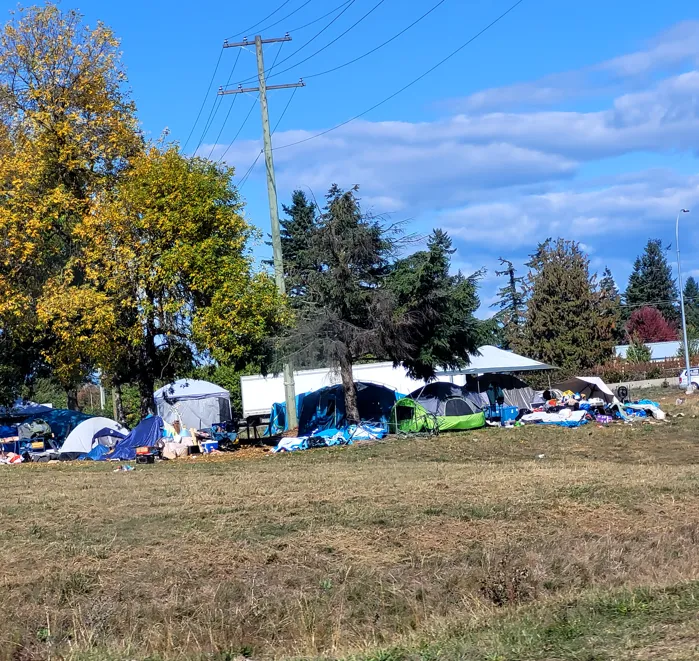
(personal image)
The housing situation is so bad that it is affecting both people WITH housing as well as without housing. More on that later though.
How do I know its bad?
Well.... I could just take the governments word for it. The government has come out and said there is a housing crisis. Normally the government wants to try and make things look better than they are. The housing crisis is so bad that even the government comes out and says that it has become a crisis and must be tackled.
In typical government fashion the government is coming up with plans that will cost too much and accomlish too little.
My son also tells me it's bad**
*Rather than listen to the government I could just listen to my son. He is currently working about 70km from home and has to commute to work every day. That means wake up at 4:45am and drive for 90 minutes. Then do the same commute every afternoon at around 3:30pm. 8 hours of work and 3 hours commute isn't much fun. The obvious solution is to find a place to live closer to work.
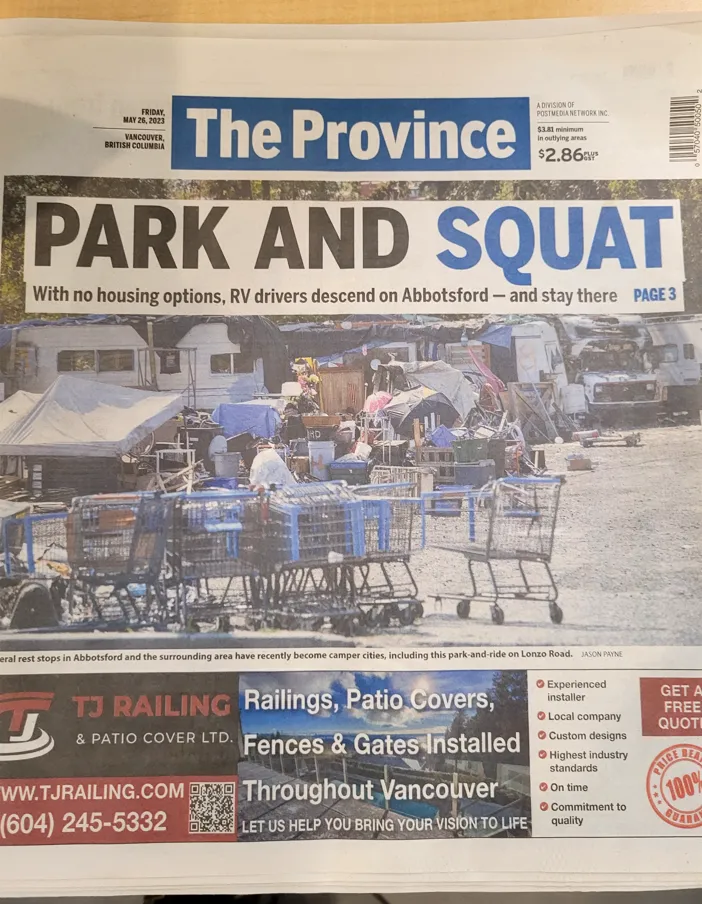
(Picture I took from today's newspaper)
3 months of looking and it is just not possible. It isn't even because of a lack of money. He has $40,000 sitting in his bank account. He is bringing in $5,000/month and has no debts. You would think he should be able to find a place. He's looking at apartments but they are $3000/month but they won't rent to him because he doesn't have a rental history (he's only 19). He's looked for rooms for rent or have room mate. Again, he hasn't found anyone willing to take on a 19yr old but even then there are only 8 listings in the area. The one person who did get back to him said "Sorry, but I've had over 50 applicants for one space"
I tried to find a place for a friend
I also have personal experience trying to find a place. I don't need to find a place for myself but I did look for a friend. I looked everywhere within 70km from my home. The person I was looking for was in his early 50s, had a steady pension income and was just looking for a basic room or studio apartment. His pension was $3000/month and typical rooms for rent are $800-1000. I figured he has money so shouldn't be a problem.
No luck. He was either too old, too male, or just at home too much (disability pension..people wanted students or working people).
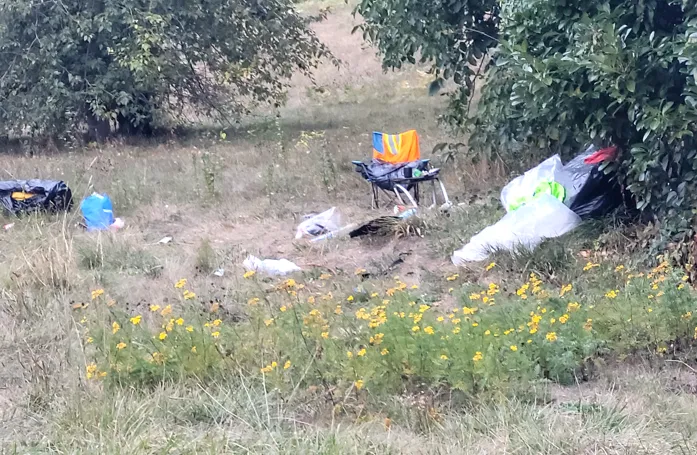
(picture from near my house of a camp where someone is sleeping under the trees)
Affordability
Now I will admit there there are a few places available to rent. If you are very rich.
Now for some math
First:
A full time worker in Canada makes an average of $55,000/year
A dual income family makes an average of $75,000/year
Second:
The general consensus is that housing should cost about 35% of income after tax.
Assuming that people paid no tax (not reasonable but for easy numbers).
An individual should pay $55,0000.35 -->$19,000/year ($1,600/month)
A couple should pay $75,0000.35-->$26,620/year ($2187/month)
Can an individual find an apartment for $1,600/month in a major Canadian city? NO. $2,600 in Vancouver, Montreal, or Toronto. $2,000 in minor markets.
How about a couple? A couple will likely want at least two or three bedrooms as couple's tend to have a family.
Can a couple find a 2-3 bedroom apartment for $2,187/month in a major Canadian city? NO. They couldn't even afford a one bedroom apartment.
How about buying?
Well, an average Canadian house sells for $700,000 and typical mortgage rate is about 5.5%. That means that the interest payment on a house is going to be $38,500 or about $3,200/month!
So: Can't buy and Can't rent. What next?
Unfortunately for many people it means homelessness.
People are living in their vehicles.
People are living in public rest areas.
People are living in tents in the park.
People are sleeping on the street or homeless encampments.
When I was younger there was still homelessness to be certain. However, at that time it was by people who typically had mental illness or drug abuse problems. Now it can happen to pretty much anyone. People with good jobs, good education and families.
When an electrician (tradesperson) or nurse (skilled worker) can't afford to live in a home there is a problem
Unfortunately being without a home leads to a number of problems. A person may not have a substance abuse problem or mental health issues BEFORE being homeless. However, living on the street can certainly lead to people developing issues that they never had before.
In reality people are just paying more and more for a place to live.
While it is recommended to pay 35% of a person's income the reality is that 35% doesn't work for the vast majority of Canadians. For people making a good wage they will often pay 50-60% of their income to have a place to live. For people who work at minimum wage jobs it means having to share a house with many other people. I've seen places where there are 4 people sharing space on a floor in a bedroom, or sleeping in a closer Harry Potter style, or generally doing whatever they have to just to have a safe place to sleep.
Renters are frankly getting fed up with paying so much for so little!
My son just returned from Tokyo Japan. When he returned to Canada he went from being a relatively content worker to very unhappy with Canada. His words:
In Japan I could rent an apartment for $600, eat out and get a cheaper meal, in a city where there is so much more to do, where everyone follows the rules and without homeless people on every corner. Why do I want to live in Canada?

(picture from my son. The room is tiny but its somewhere cheap to sleep)
How do I respond to him as a father? He's right. Canada is quickly becoming non-liveable. How do I argue with renters who are frustrated by paying so much for so little!
It is especially bad because many landlords know that they have a valuable commodity and in a free market society they can charge whatever they want. Typically there is someone who is willing to pay it! Even its a health hazard. Even its uncomfortable. Even it comes with unreasonable rules. If the only other option is living on the street....you do what you need to do.
Reasonable expectations for Tenants.
Now from the tenants perspective what should they expect?
There are lots of expectations but from my perspective I believe a tenant should expect to:
- Be able to find something safe and clean to rent for about 35% of their income
- Be able to expect that they are able to stay in that property for as long as they need it.
- Be able to expect that they can expect quiet enjoyment of the property without landlord interference
- Be able to get prompt repairs when something goes wrong.
But obviously that isn't happening right now. Rents are far more than what would be considered reasonable in my opinion. Landlords are trying to bypass rent control by getting rid of tenants by any means necessary and then get new tenants who will pay more rent. They are often put in unsafe or substandard living conditions because landlords either can't or won't make repairs or safety updates. Plus to make things close to affordable extra people have to share the home just to be able to afford something...which makes it much less than "quiet enjoyment".
Reasonable expectations for landlords
Tenants aren't the only people getting a bad deal in this current rental situation. Landlords are also facing a tough time. How do I know? I'm a landlord myself. In fact I own three different rental properties. As a landlord I expect the following:
- To be paid rent on-time in an amount reasonable for the financial investment required to attain and maintain the property.
- To have tenants take reasonable care of the property in which they are entrusted to live
- To vacate the property in a timely fashion when given property notice for an approved reason
I've found that those expectations are also not being met. On one of the properties I had tenants that were ruining the place. They were treating it like a garbage dump and when they were given notice they refused to leave. In the end it required a full year for the eviction, hiring a lawyer, and paying over $10,000 to get rid of the problem tenant.
Then we had a much better tenant who recently gave their notice. They paid mostly on time and were always pleasant. When we went to inspect their unit after they left we knew that we were going to have to make some costly repairs. They didn't take very good care of the home and it required about $7,000 worth of repairs and maintenance to get things back to a point where I would feel comfortable renting it again.
Then of course there is th sticking point for everyone involved:
What is reasonable rent?
I'm going to postulate that there are two ways to look at reasonable rent.
The first way is this:
A place to live is a commodity. It is owned by one person who should be able to charge whatever he is able in a free market society to make as much profit as he can. The rent should be as much as someone is willing to pay for the unit. Why not? No-one is forcing someone to rent MY home so why not get as much as possible?
I personally don't like that viewpoint at all. Having a safe place to live is something I see as a basic right and I think that a safe, clean place to call home is essential for everyone.
However not for profit certainly doesn't mean FREE!
How do I calculate "Fair Rent?". Let me take a $250,000 apartment as an example:
Value : $250,000
Taxes : $1,500/year
Maintenance : $ 1,500/year
Strata (Home owner dues) : $ 3,600/year
If I just add taxes, strata and maintenance (the expenses) I need $6,600 income yearly to make sure that I don't lose money. However, if I charge this I'm getting no return whatsoever for my $250,000 home.
If I was to sell the home and just put the money in a savings account I could get 4% interest on $250,000 or about $10,000 yearly and never have to worry about any of the landlord hassles! I believe it is realistic to get an amount of income equal to a basic GIC/Savings Account rate for the value of the home.
In this case $10,000 (4% of $250,000) then add on expenses of $6,600 and I believe it would be reasonable to expect $16,600/year in rent.
For this home that would $1,383/month.
In the case of my most recent rental it meant that I charged a rent of $1,250 even though I know that an identical unit in the same building was currently rented for $2,100! Why? Because I believe a landlord has a responsibility to get a fair rent not the maximum rent.
But landlords charging fair rent won't solve the current rental crisis
Even if all landlords were to commit to following what I believe to be a FAIR rent instead of the maximum possible rent there would still be big problems. Why? Let's take an average house in the city I live in.
Average house price: $1,000,000
...which means $40,000 / year for return on investment.
Property Taxes : $5,000 / year
Maintenance : $3,500 / year
Insurance : $3,500 / year.
That means the rent for a house where I live would be $52,000 per year or about $4,350/month! With the 35% rule that means a house for rent would only be affordable for someone making $150,000/year which is only a very small portion of the population. When considering how much income tax is taken from someone who makes that much money the income to rent a house at "fair" rent in my town is probably more like $225,000 / year which is a crazy amount of money.
Side note: Bare land (no house) in my town goes for $700,000/lot. Mortgage rates are close to 6% which means that purchasing a house is just not possible unless you already have a house to sell. Regular people working regular jobs will simply NOT have the kind of money it takes to buy a home. Virtually without exception.
How would I solve the problem?
There is no ONE easy solution. The Canadian government has committed to spending billions of dollars to create affordable housing. The government has announced tax breaks and other incentives for builders to make more housing. I'm skeptical that those will make enough units fast enough. If I was able to make changes that I think would be meaningful and potential work fairly quickly to change the current problem I would take a few different approaches:
- A Japanese approach -- The Manga Kissa and Capsule Hotel
- The Filipino approach -- The SM Residences and Bedspacers
- The ICBC approach-- Make a central government agency for housing
- The credit score approach-- Give people a "renter score"
- Turn renters into owners
The Japanese Approach
My son just returned from Japan and he had a truly wonderful time there. While he was staying there his average nightly stay was between $25-$50/night. Over a month he was able to stay in Tokyo, Kyoto, Osaka and Hiroshima for $750-$1500/night. That's cheaper than he is looking for a room for rent in North Vancouver and far more flexible.
How did they do that? Manga Kissa and Capsule hotels.
Manga Kissa
Now the Manga Kissa is the least expensive way to keep from sleeping rough while in Japan. It is just a small room with computer, electricity and space to put your backpack. Washroom facilities and food are also available there. However, the units are very small at slightly over 1m wide and 2m long. Many are also not completely separated from their neighbors as their walls often don't go all the way to the ceiling.

(image of the hallway in a manga kissa from my son.)
Is it a great place to stay? Not really.
However, it is so much better than homeless. Protection from the elements (warm in the winter, dry in the rain). Safe place to get sleep unlike sleeping homeless where violence is a very real problem. A place to get clean, use a washroom, clean clothes (in some of them), get some inexpensive calories (soft drinks, instant noodles), and even have some place to use the internet to catch up on work, job offers, latest videos or music.
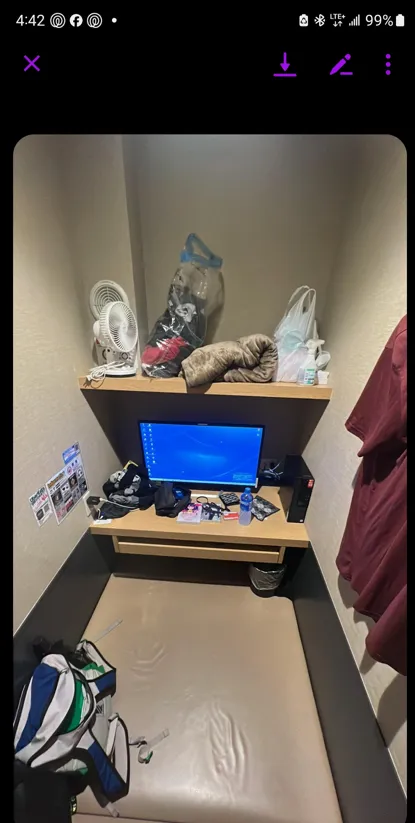
(an actual tiny room but it is safe, warm and clean...with internet)
Compared to being homeless it is a HUGE step up.
But these places are short term stay. As little as 15 minutes to as long as 24 hours. They are not a place to call home but rather a stopgap from being homless. Personally even 15 minutes for a clean washroom to use would be a huge benefit for me! With the homeless situation in Canada finding a public washroom is quite a feat. Having a manga kissa with clean washroom, even if there is a small charge for 15 minutes, would be great.
Capsule hotel (Japan) or Bedspacer (Philippines).
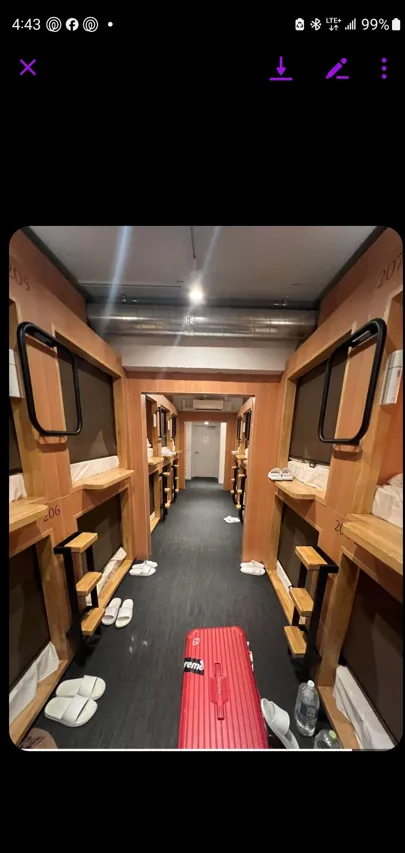
(Image my son took of a capsule hotel)
A longer term place to stay is certainly preferable to short term places, even if it is just a very small place or even if just a bed. Capsule hotels are a tiny coffin sized space where a person can sleep in peace. If anything they are even smaller than a manga kissa but they are designed for a more comfortable sleep and a longer stay. Having a regular place to be is huge as it gives stability to people.
In the Philippines they don't have capsule hotels but they do have bedspacer rooms. Roughly said they have a single room but instead of having a single bed in it (Canadian standard) they will put multiple bunk beds in it. When in University my wife stayed in a single room with 3 triple decker beds. In short 9 people sharing one room, one washroom and one kitchen. However, each person did have their own locker space for their belongings. Is it idea to share with that many people? Not really. Again, having a fixed space to call your own, a fixed safe place to put your belongings, a regular place to use clean washroom facilities and cook your own food is a HUGE step up from being homeless. Even with Canadian prices for an apartment they start becoming affordable if there are 9 people to a room!
The SM Residences (Philippines)
Now no-one really wants to have 9 room mates for any extended period of time. Long waits for the washroom. Crowded and noisy common areas. Differences in personalities and other issues make cohabiting with that many others difficult. Manila (capital of the Philippines) is unbelievably crowded and land prices are probably as expensive as Vancouver on a per square meter basis. How do they find housing for so many when the wages are low and prices are high? The answer is to make small units that are stacked up high.
The SM Residences are an example of this.
The typical SM Residences are 24 stories high and take up an entire city block. The lowest level is designed for retail stores (grocery, banks, services and so on) and the interior of the lowest amenity has security, weight rooms, business center, lounge, and lots of other facilities for the residents in the complex. The second floor actually has really nice amenities for the residents: Pool, jogging track, childrens play area and much more. On top of that there are 450 units per floor x 20 floors. That means 9000 small apartments in a city block which is far more than the average in Canada!
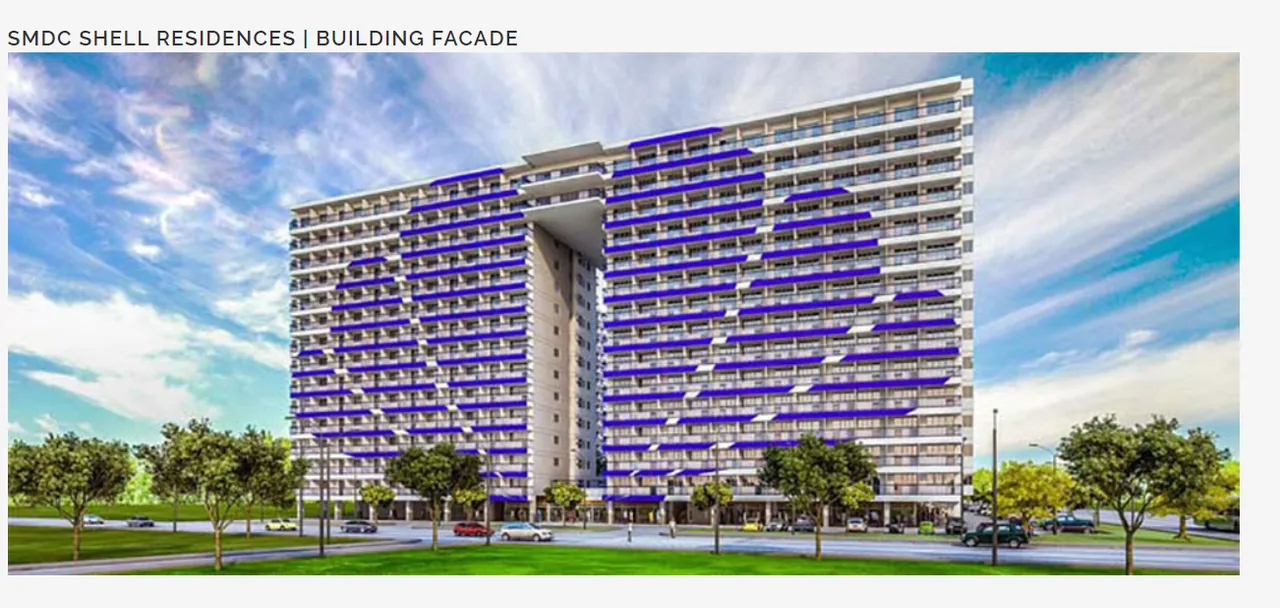
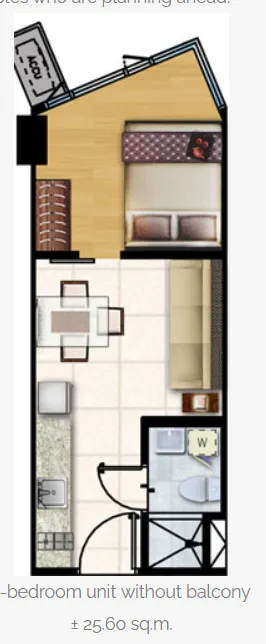
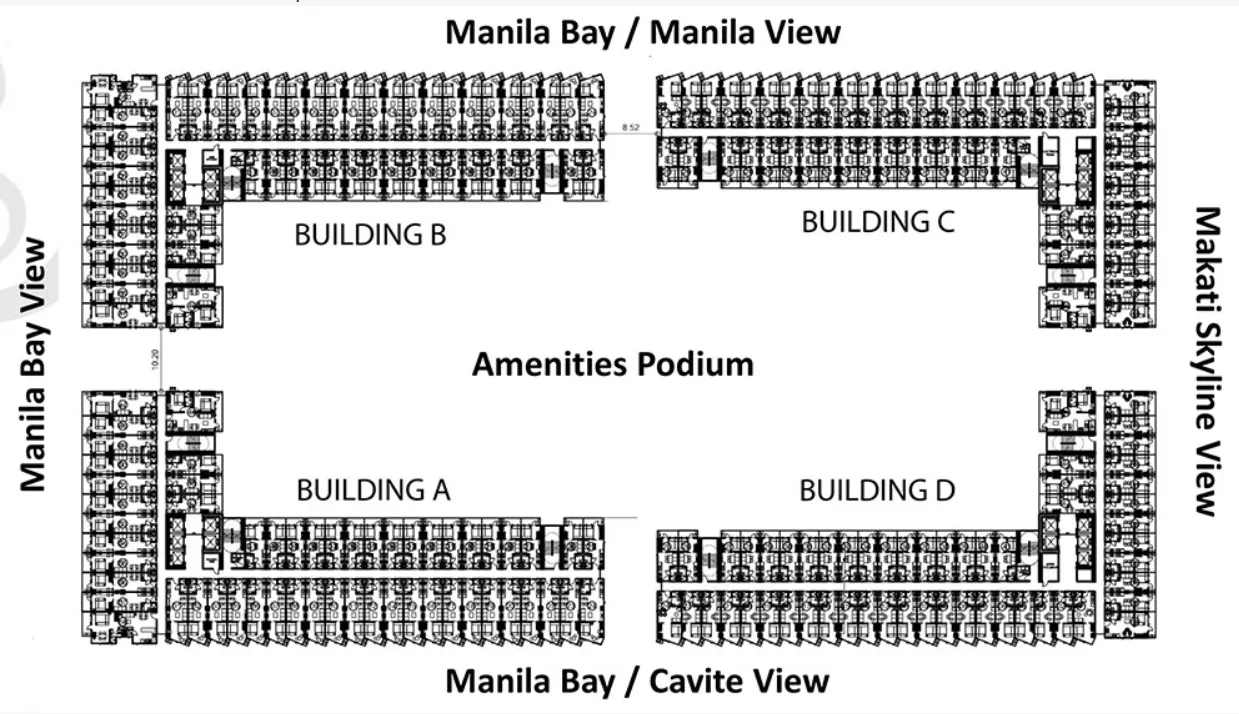
Source: SMDC sales promotional site
(I've been in the unit and can attest that it looks like the promotional site)
Now lets do some math...
Assuming that SMDC complex was built in Abbotsford (my hometown). Land here is $700,000 / city lot and 37 lots would be needed to build the complex. That would be roughly 27 Million dollars to buy the land.
Then the building has to be put up. 24 stories at 300sqft per unit and 400 units per story. Each unit costing $250/sqft. $75,000 per unit. That would be 40075,00022 = 660 Million dollars. (first two stories are amenities and shopping not residential).
That would make the building $690 million to create or about $80,000 per unit. Which is actually pretty close to what the units are actually selling for in the Philippines.
At $80,000 / unit how much would it sell for with current interest rates at 6%?
$575/month
Plus maintenance and insurance and so on.
However, that would put the cost to own the unit at $800/month which is actually affordable for the vast majority of Canadians. How about if it was to be rented though? Using my "Not for profit model" from earlier:
$80,000 * 4% = $3,200 / year or $267/month plus the cost of insurance, maintenance and taxes.
Again, totally affordable for the virtually any Canadian even those on social assistance!
The ICBC Approach
I'm going to assume that the vast majority of Hive users will have no idea what ICBC is as it is only something that exists in British Columbia, Canada. Here is the quick version:
A long time ago it was very difficult to get auto insurance in my province. Some people couldn't get it because they had bad driving records. The amount everyone paid fluctuated a lot depending on where they lived and who they talked to. Then there was always the problem of getting the insurance company to pay after an accident with some companies being much better than others.
To end the competition and confusion the government created an insurance company called ICBC (Insurance Corporation of British Columbia) which would insure ALL people who wanted to drive a car in the province. Whether you had a spotless driving record or you were a reckless driver you could get insurance through ICBC. However, good drivers got a nice discount and bad drivers paid a huge penalty.
Now when I want to insure my car there is no calling around for the best deal. There is no wondering where I should purchase from and no worries that my claim will be denied. If ever I'm in an accident I know who to contact. The insurance company lets me where to get the repairs done and everything is taken care of without issue.
If only it was so easy with housing!
Imagine if you had a one stop place to go when you needed a home. A place where you could go and know that you would find a fairly priced unit, a unit that was well maintained, if there was a problem you could call them and it would get taken care of, and if you were eligible for special discounts they would take care of it. As a tenant it sounds pretty good to me!
How about from a landlord point of view? Imagine if there was one place you could go if you wanted to rent a property. They would arrange an inspection, correct deficiencies to make it rentable, find a suitable tenant, guarantee a fair rate of return, take care of finding tenants, evicting tenants, maintaining the unit and the owner just lets the cash come in every month! As a landlord that sounds pretty good to me too!
Consolidate current housing plans
Right now the government has too many housing subsidy's and plans. They have a plan for seniors to stay in their homes. They have the rentals board which adjudicates disputes between landlords and tenants. They have low income housing programs. They have housing programs for inmates and homeless to get into housing. There are probably many more than I don't know about.
I would propose making one government corporation responsible for all rentals in the province. People could still buy and sell their house whenever they wanted. For those who own nothing changes. For those who want to rent a property they have to register with the government corporation who would then inspect the property, assess the vaue of the property, provide the manpower to update the property to meet safety and health standards, then take over rental and adminstration of the property. In exchange the government corporation would give money back to the owner every month.
The government could have a team of contractors ready to repair any problems. The government could keep a registry of good and bad tenants giving discounts or access to better units to those with a proven track record. They would also charge more or limit access to better units to those who have a poor track record.
In addition they could better manage the poor of available houses in the market AND their use either short term or long term. They could make certain areas more available for short term rentals and increase the overall return for overall portfolio so owners could get a slightly better return. It would give "good" landlords a similar or better return than they were getting although "greedy" landlords may find they get much less money monthly. Honestly....I'm OK if the greedy landlords get screwed. Either way it would increase the overall quality and access to places for renters and reduce the risk from bad tenants to the landlords (the government would be responsible for insurance and maintenance on the properties).
Now you might think that I'm against private ownership of properties if I'm recommending turning over rental units to the government to control in a province wide "rental pool". However, that is totally untrue. I believe land ownership makes for stronger communities and for better neighborhoods. I just know that right now there is an entire generation with NO access to ever owning their own home. Which brings up my next point.
Making a pathway to home ownership
Ultimately I believe that home ownership is a good thing. It fosters a sense of belonging. It lays down ties to the community. It promotes financial independence and generally helps people sleep better at night knowing that they don't have to worry about rent.
However, home ownership isn't for everyone. Many people are not yet at a point where they are ready to set down roots. Young people and immigrants especially may not yet now where they wish to settle and want to explore their options around the province or country.
Then there is the issue of maintenance associated with ownership. No house will survive if left unmaintained. Some people are great at maintaining houses and others much less so. Some people want to have their home but travel away for many months of the year leaving their property vacant.
As people age many seniors find themselves house rich but cash poor. For these people they need access to cash to live but also find they don't want to leave a home that is familiar to them. Of they do wish to move but find the process of selling a property confusing.
Then there is the problem of financing for those people who do wish to settle down. Many responsible and helpful people in the community simply do not have the financial means to purchase a home where they work. Instead they have to travel long distances to get to their job wasting their time and energy and causing pollution and crowding on the roadways.
I believe that a central government run property management system could help people get into a home if they wish to own. It could help people maintain their home if they are not good at doing so. It could help people get out of their home when it was time to move on or get money out of their home instead of relying on reverse mortgages.
Let's split that up into three groups
First: Those who hate maintenance
Second: Those who want to get into a home
Third: Those who want to cash out of their home.
Let's make a few assumptions:
- That there is a rental corporation which is responsible for renting to tenants, maintaining rental units and distributing rent to landlords
- Let's assume that landlords give up control of their property when they sign up their unit for rental. In return they get a "cash value" assigned to their account which will make 4% interest. While the house is in care of the government they will be responsible for maintaining and renting the home as an amount able to sustain the 4% return. When the land owner wants to get his house back their "cash balance" goes to zero and the land is returned.
- Assume that renters pay a fixed 35% of their income towards whatever home they chose to rent. If the rent is higher than 35% they cannot move in. If the rent is lower than 35% then any extra funds are added to their cash value and makes 4% return.
- Renters that damage a home will have the damages taken from any cash value in their account when they move to another unit. However, any renter which takes good care of the unit and causes there to be less than usual maintenance costs will have that value added to their cash value.
- Any landowner who doesn't like the maintenance portion of home ownership can deposit their home with the corporation. They will then be a tenant in their own home. They won't pay any rent per-se but will pay a monthly fee for maintenance, taxes and so on
- Any senior would be given the option to add their home to the rental pool and "rent" their home like the landowner above. They would be given a "cash value" for their home and could take out a portion of that value every month and have maintenance and repair costs also come out of the cash value. In effect getting a reverse mortgage. This would continue until either (a) the cash value of the home reached zero at which time they would have to pay maintenance and taxes on the home but there would be no "rent" for them and when they pass the government would take ownership of the home. If they die before the cash value is depleted the cash value of the home would be given to their estate and the government again takes control of the home.
- Any renter than has a sufficient "cash value" in their account and sufficient income to purchase the home they are renting would be given first choice to buy the home at fair market value should the owner ever decide to sell. If they decline then any current renter who has enough "cash value" to purchase the home at fair market value would be given the opportunity to purchase. Only after all the renters are given a chance would investors be given the option to purchase.
But what if a landlord was getting older and wanted to "rent to own" to a tenant? Well, that could work too.
Instead of the company charging fair market rent (4% plus costs) they would just charge fair market mortgage (6-7% plus costs) and again the renter gets to stay but now as a rent to own basis. The landowner gets an assured higher income and the tenant now becomes an owner, albiet at a higher monthly payment.
Overall net result:
With a central property management (government owned) company it would simply the whole housing process.
Tenants would get a "one stop shop" to find a home with a firm basis on fair price. With a single contact for repairs and problems. With the option to pay more and build up equity to purchase either their home if it becomes available or a different one if its more appropriate.
Home owners would get the option to use the service to provide reliable maintenance and service on their home for a reasonable price. No more trying to find a licenced service technician as the government would already vet the work.
Landlords would access a guaranteed monthly income for rentals. A guaranteed higher monthly income for rent to own units. Also more liquidity as every renter would have the possibility of having a cash pool to "purchase" a home when it becomes available.
Seniors would have more options to stay on their own as they become older. There would be more flexibility for reverse mortgages. More flexibility in keeping long term residents in their home. An easier process for the estate when the senior eventually does pass away.
Of course prioritizing sales to current renters over investors and foreign nationals would really annoy some people. It may also limit returns from property appreciation year over year.
However, I'm all for any proposal that puts people into homes that they eventually own. If that excludes or makes it more difficult for foreign ownership or limits an investors ability to snipe on a prime realestate property....well, I can live with that.